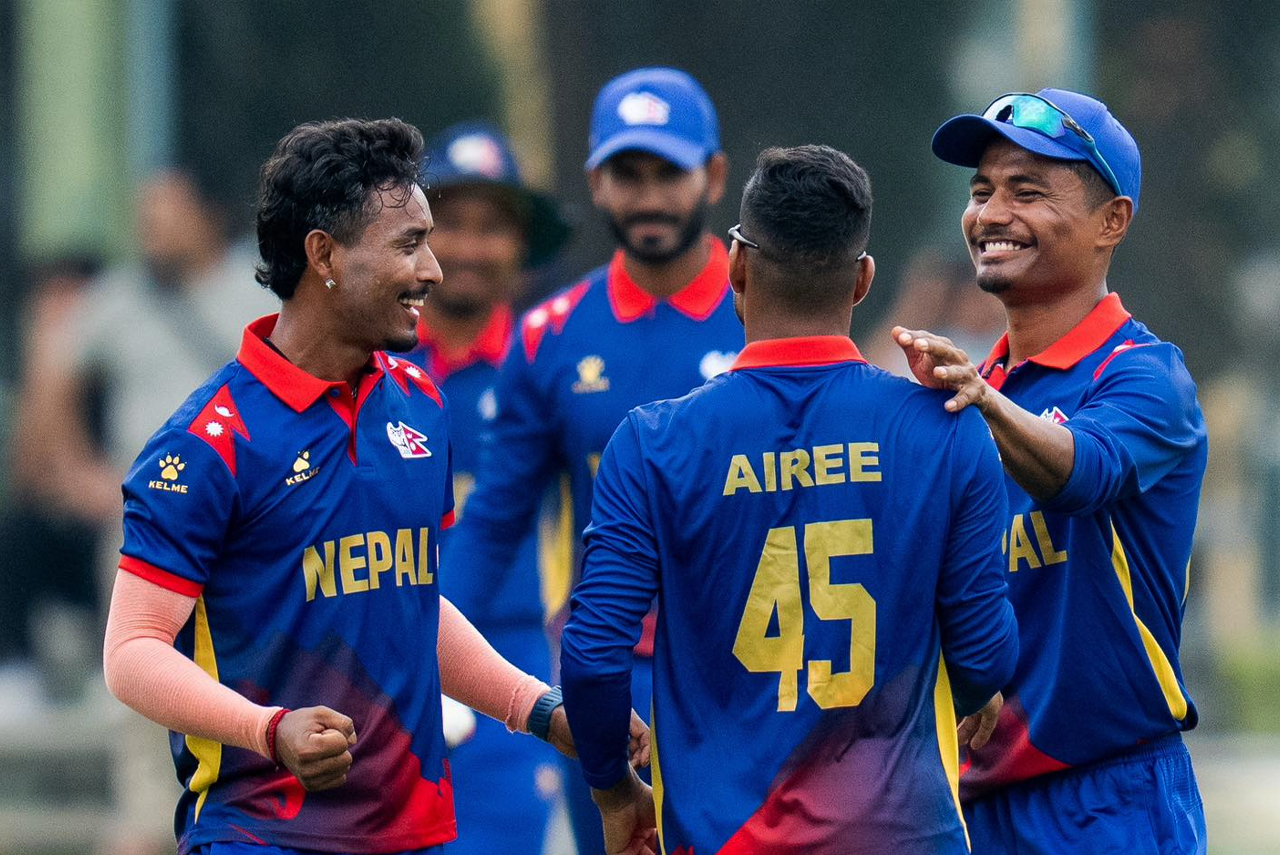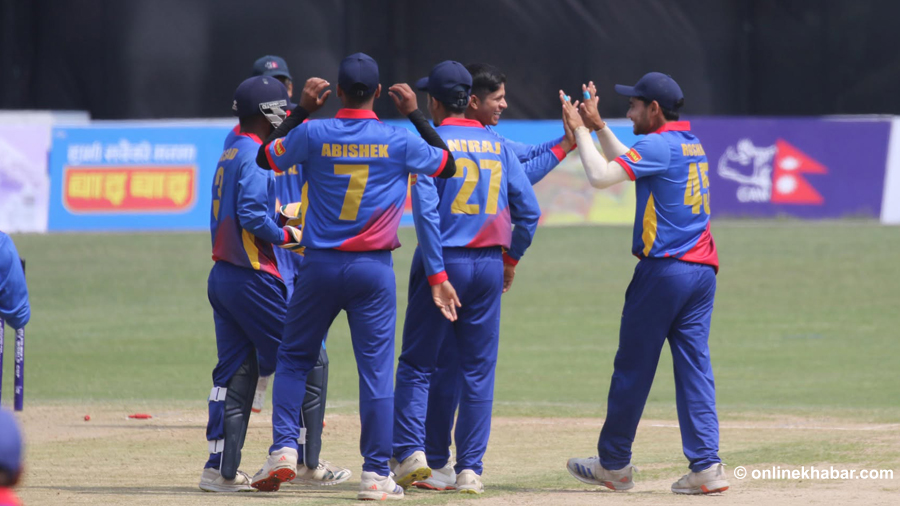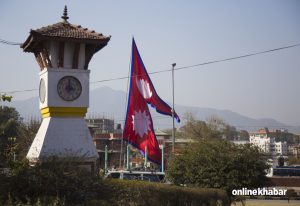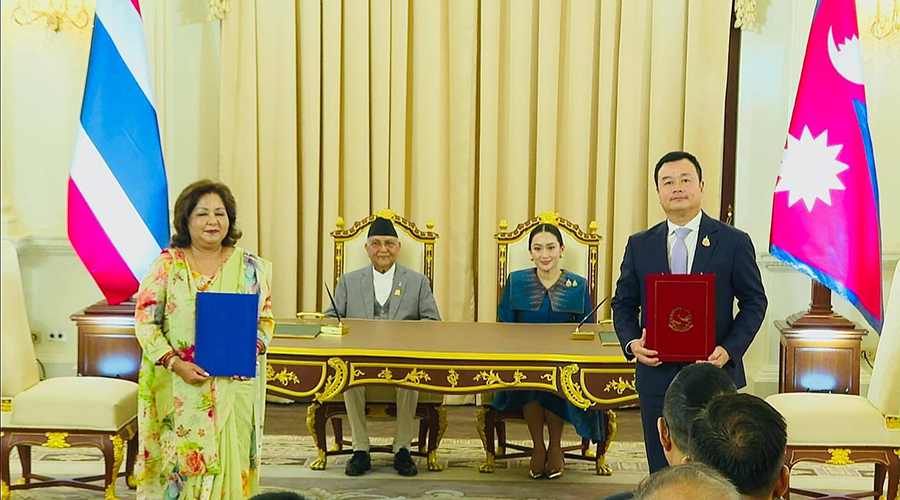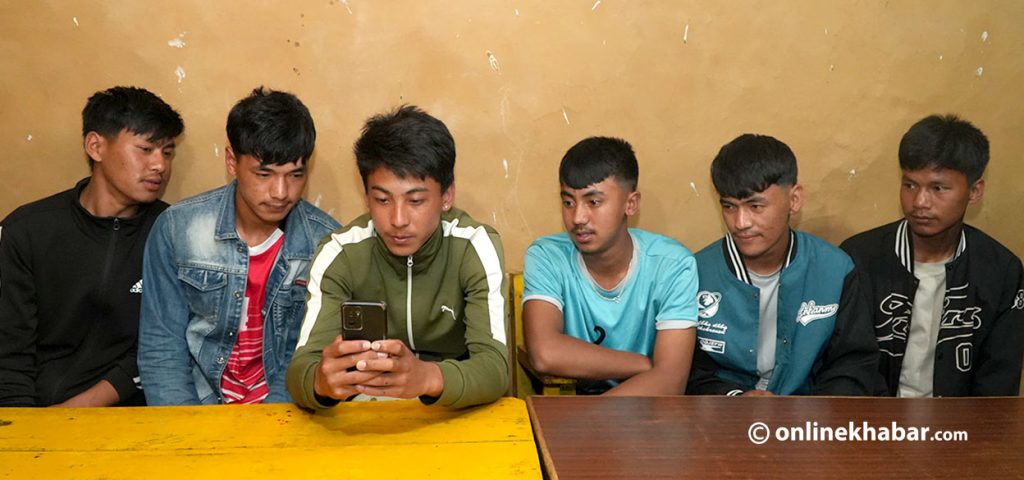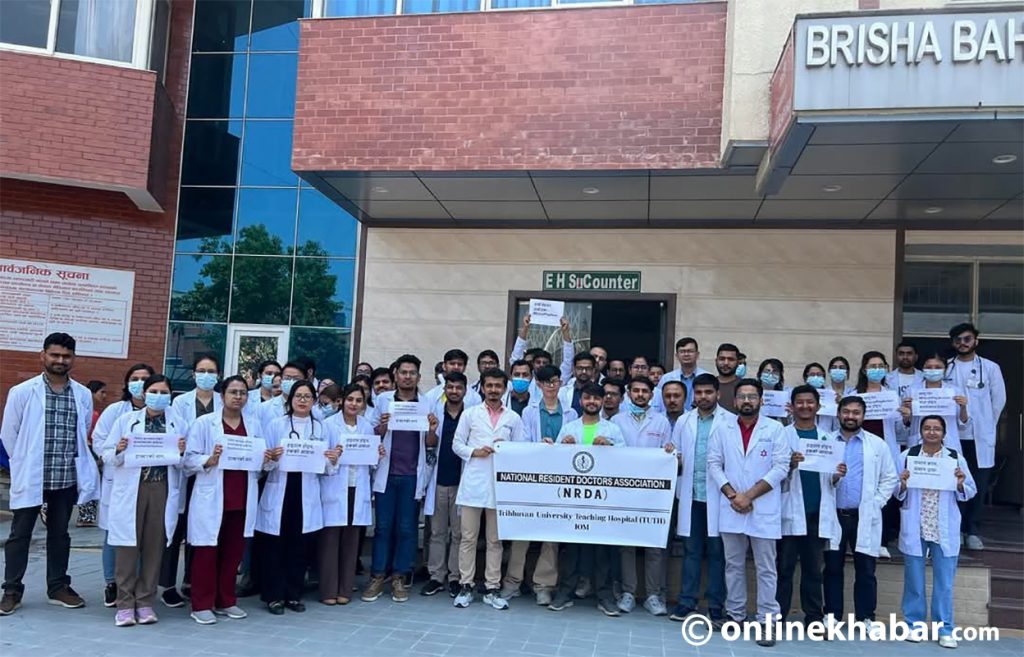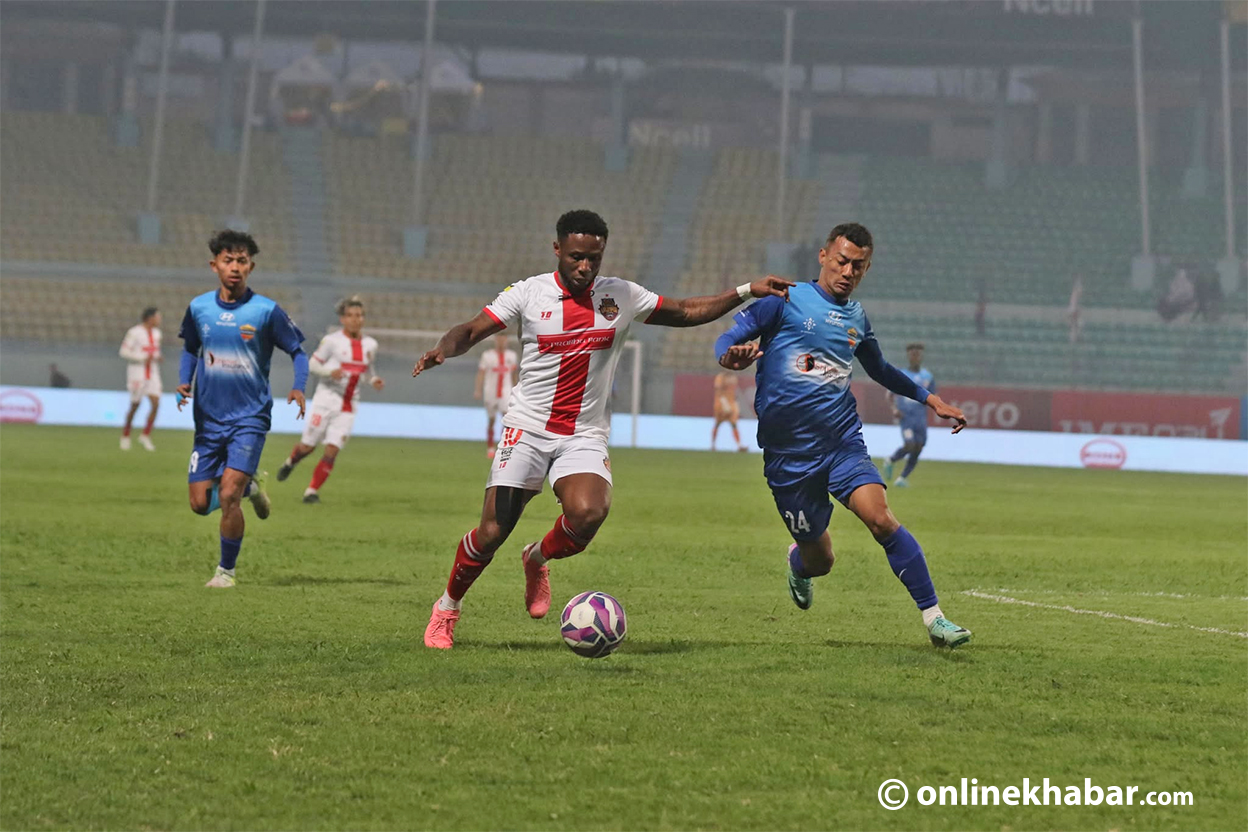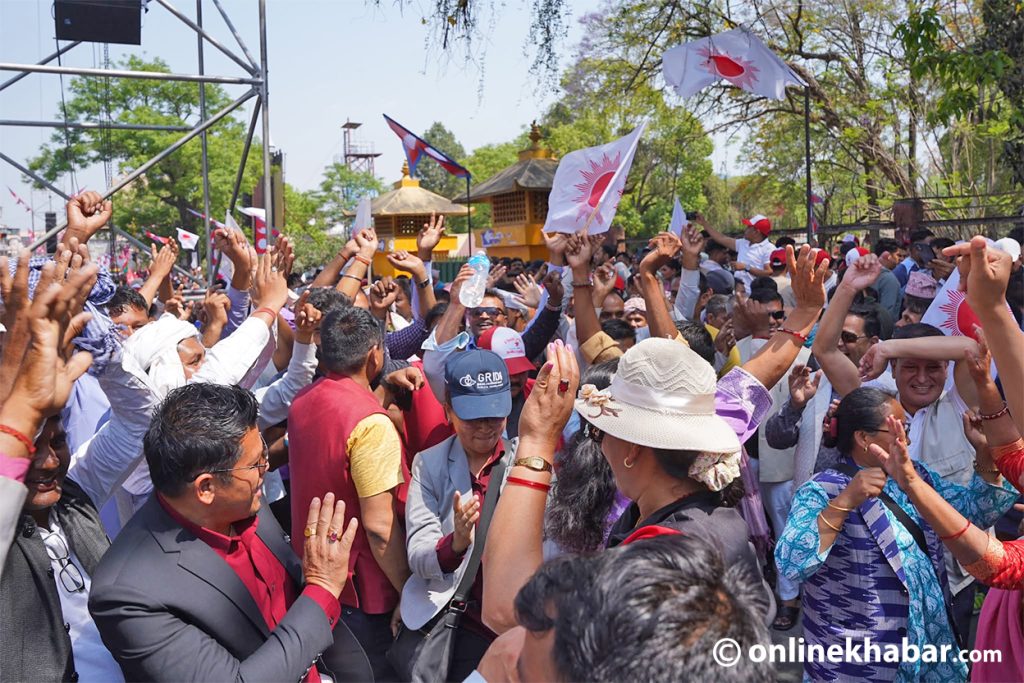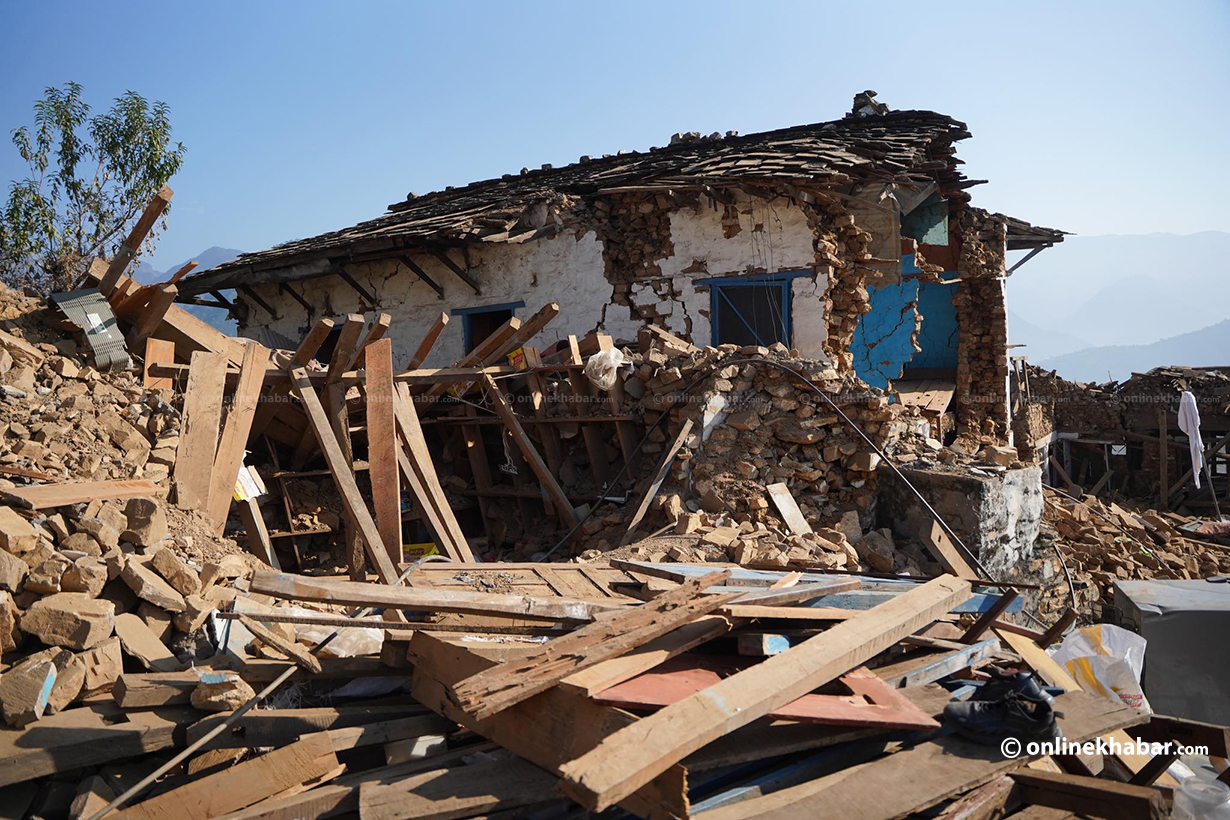It was August 2020. Covid-19 was at its peak in Nepal. But a different virus was plaguing Nepal’s ruling party as an internal dispute between then prime minister KP Sharma Oli and other party leaders had reached a tipping point.
During that time, the Department of Railways released a call for tender for the 106 km railway line from Morang to Sunsari. The Rs 33-billion project was to be divided into 54 parts and a tender would be called for each of these parts. In the meantime, the Commission for the Investigation of Abuse of Authority (CIAA) felt something was wrong with the project and decided to investigate the matter as the tender was being passed without deciding compensation and preparing for the environmental impact assessment.
The anti-corruption constitutional watchdog formed an investigation committee and sent letters to the respective district administration offices under whose jurisdictions the tracks would fall. The letters soon reached the Prime Minister’s Secretariat via a DAO and railway contractors, after which the CIAA got a call from Oli himself–asking the commission not to investigate the matter.
Only a few CIAA officials had known about the issue and were puzzled when they received a call from a sitting prime minister asking them to stop the investigation. The news reached the then CIAA chief Navin Kumar Ghimire who asked his fellow officials to put the case on hold.
***
On June 3, 2018, addressing the Bagmati Provincial Assembly meeting, Oli had said he was and would always be against corruption.
Speaking at the event, he had said, “I’ll not be involved in corruption, nor will I let that happen under my watch. I don’t care if that person is a party cadre or a senior leader, I’ll not see their face as I’ll ask officials to take swift action against these crooks.” Many times, he repeated this statement wherever he went.
During Oli’s reign as the prime minister, a Damak local, Madan Kumar Adhikari, frequented his residence. But, on January 7, Adhikari was charged with corruption by the CIAA as it found irregularities in the Lal Bakiya River Control Project.
The CIAA accused Adhikari and other officials of the Mainachuli Construction Service of embezzling Rs 36.5 million. As the case started to move ahead, Adhikari and others kept on visiting Oli at his residence in Baluwatar, says a former CIAA official.
***
Oli was appointed prime minister of Nepal on February 15, 2018. He partnered with Maoists and Madhesi parties to form a two-thirds majority government.
Since Oli had the majority, people were hopeful that things would change in terms of governance. Their hope was justified too as Oli, during his many speeches, used to say how he would promote good governance. But, experts say he failed to live up to his promise as things might have gone worse during his time.
“Nothing changed in his time as bad governance received a better foundation. What we felt shouldn’t have happened started happening on a regular basis,” says former chief election commissioner, Bhoj Raj Pokharel. “He started thinking if people before him could do it, so could he. He had such a great opportunity, but he ruined it.”
There are many pieces of evidence that support this claim.
Speech vs action

Upon being appointed, he had said he would take action against everyone who had amassed black money and added that he would also control corruption. But, within a few days, his tone started to change as he stopped talking about money laundering. Instead, he said he would promote foreign direct investment (FDI) in order to develop the country.
A source told Onlinekhabar that the Department of Money Laundering Investigation could not carry out its case against the former chief of army staff Rajendra Chhetri because of Oli. But until he left the office earlier this month, Oli continued to preach how he would stop corruption.
But ironically, Oli, during the CIAA’s anniversary two years ago, had joked how it was corrupt who talked about controlling corruption.
This is interesting as Oli had pressurised the CIAA officials to not take action against Chaitanya Sharma, the chairman of the Tribhuvan University Service Commission who had been charged with corruption. Oli also had support from President Bidya Devi Bhandari. But, the charges were not dropped as CIAA officials showed courage.
During the second half of Oli’s term as the prime minister, he defended himself stating he did not have support from leaders within the party nor the opposition to fight corruption. He even accused his co-chair Pushpa Kamal Dahal of protecting people accused of corruption.
Bad policy

Corruption in Nepal has been safeguarded by decisions made by the Council of Ministers as the CIAA does not look at cases at the policy level. This trend continued during Oli’s time also.
Italian company CMC’s contract to build the 26 km tunnel under the Melamchi Water Supply Project was cancelled in 2018 just before it completed the project. After that, the Council of Ministers decided to divide the project into different parts and called for tenders that were worth Rs 3 billion. As this decision was done in cohesion with all parties, there were no disputes.
Likewise, in order to make it easy for the Yeti World to acquire land owned by Nepal Trust, the government brought new policies as the Nepal Trust Act was amended. Through the amendment, the government could appoint any minister to be the chairperson of the trust while in the past, the role was given to the home minister. Another amendment was the trust’s land could also be used for sectors other than health and education. The government, through the amendment, could now appoint officials based on their choices as well.
Another example is from the ambitious Budhigandaki Hydropower Project. In September 2020, former prime minister Baburam Bhattarai accused leaders of the ruling Nepal Communist Party and the main opposition Nepali Congress of pocketing around Rs 9 billion that should have been used in the Budhigandaki Hydropower project.
“They take away money in billions. These top leaders are cheating taxpayers,” he had said. “Oli, [Sher Bahadur] Deuba and [Pushpa Kamal] Dahal have pocketed Rs 9 billion from the project that I had started during my time as the prime minister. I can prove it as well. Just take a look at the status of the project.”
The project was given to the Chinese company Gezhouba Group during the time when Dahal was the prime minister. The deal was endorsed by Deuba too when he became prime minister for the fourth time only to cancel it a few months later.
When Oli came to power, he gave the contract to the same group raising a lot of questions. But, Bhattarai’s claims were never taken seriously as no one investigated the matter.
Protecting the culprits

A few members of Oli’s secretariat were involved in the Morang-Sunsari railway tender. They would often call Balaram Bhattarai, the then director-general of the Department of Railways asking him to pass the tender and move the project forward.
“They had a plan to use the Madan Bhandari Foundation to embezzle money and distribute it among them,” says a CIAA official on the condition of anonymity. “The project was worth Rs 34 billion, of which they were going to pocket the 20 per cent mobilisation cost and distribute it among themselves. After getting the initial money, why will they care about the work?”
There are many examples of Oli protecting corrupt officials and affecting various investigations. A prime example is the NAC wide-body aircraft purchase case which even though started during Deuba’s reign, Oli was the one who protected the culprits. The Public Accounts Committee of the parliaments investigated the matter as soon as Oli came into office.
Oli, to show he had done something, formed an investigation commission under the leadership of former justice Govinda Prajuli. But, the commission’s 45 days’ term ended without receiving an appointment letter. A similar case happened during the purchase of narrow-body aircraft too as the government did nothing despite having enough to take actions against those who were involved in the aircraft’s purchase.
Oli was also accused of promoting the Yeti World. During his time, the Yeti World got the lease for the land of the Gokarna Resort renewed by 25 years. This shed light on other similar incidents as many land plots belonging to Nepal Trust were leased to the Yeti World with relative ease. However, some were given to the Yeti World before Oli’s time.
“The Oli government could have done so much, but it has failed the people who elected him,” says former secretary and CEC Bhoj Raj Pokharel. “Initially, he did show promise, but later on, it was evident that most of it were limited to talks only.”
Last year, Oli even made former IGP Sarbendra Khanal and members of the House of Representative Mahesh Basnet and Kishan Shrestha kidnap Samajbadi Party lawmaker Surendra Yadav from Janakpur and keep him at the Marriott Hotel in Kathmandu. Medical colleges that took excess fees from students were also left off the hook by the Oli government as it continued to work on behalf of their near and dear ones.
Ministers and controversies

During Oli’s time, he changed a lot of ministers as most of them fell into controversy. Gokul Baskota was caught trying to gain extra commission on a print press deal. In the leaked audiotape, Baskota was asking for around Rs 700 million extra commission from the foreign company. Apparently, Oli was told about this, but he turned a blind eye. It was only after Pushpa Kamal Dahal’s intervention that Oli took action as Baskota was forced to resign as the communications minister.
The Public Accounts Committee did an investigation into the matter, but it could not make a specific verdict as it submitted the report to the CIAA. An official at the CIAA says Oli made sure that this case was never moved forward and Baskota was set free.
In March 2020, Nepal had just gone on the first lockdown to control the Covid-19 crisis and the government decided to make the process of buying medical equipment swiftly. Deputy Prime Minister Ishwar Pokharel, as the chief of the Covid-19 Crisis Management Centre, asked the government to give this deal to Omni Business Corporate International. Then Health Minister Bhanu Bhakta Dhakal also got tangled in this case as the Public Accounts Committee started looking into the case.
But just like the printing press deal, this was also sent to the CIAA without any clear investigation. No detail has been made public by the CIAA regarding both cases. The number one reason for that – KP Sharma Oli.
“He said he’d take action against his own people if they were corrupt. But, Oli became the judge and jury and started to save his near and dear ones,” says senior advocate Shree Hari Aryal.







